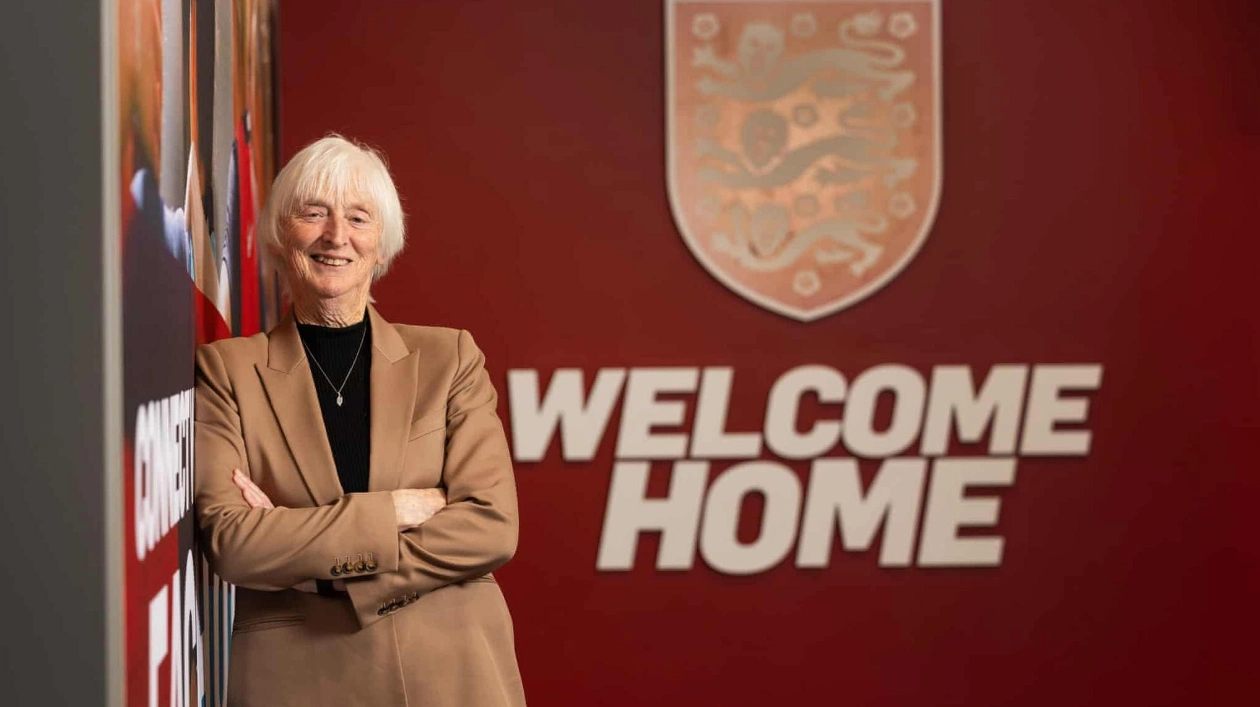When eight-year-old Sue Campbell mysteriously disappeared from school for a week, her puzzled father decided to follow her. He soon discovered the reason: unable to play football at her all-girls school, she was disembarking at the local primary school, hiding in the bushes, and joining the boys for football during breaks. "I was very naughty," Baroness Campbell recalls. "But the boys I played football with every night in the street were improving faster than me because they played every day at lunchtime, and I didn’t like that."
Unable to pursue a football career, Campbell went on to represent England in netball. However, the frustration of being told girls couldn’t play football resurfaced during her PE teacher training, which focused on netball, hockey, athletics, and tennis. This frustration led her to accept a job offer from Martin Glenn, then CEO of the Football Association, in 2016, despite being at retirement age and having just chaired UK Sport during the London 2012 Olympics. "Football is the most powerful brand we have to effect change," says Campbell, who retired from the FA on Friday after eight transformative years as the director of women’s football.
Initially planning to work part-time for a couple of years, Campbell quickly became fully immersed in the role. One of her key decisions was advocating for a women’s unit within the FA, ensuring every division prioritized the women’s game. "I’ve been grateful to work with tremendous people," she says.
Listening to Campbell at St George’s Park, it’s clear her passion for girls’ participation in sports is as strong as her joy in the Lionesses’ Euro 2022 success. She points to recent figures showing a 56% increase in women and girls playing football since 2020 and an 88% rise in female coaches. The appointment of Sarina Wiegman as England’s head coach, a decision made with the FA’s chief executive and technical director, is perhaps the most crucial since Campbell’s arrival.
On 31 July 2022, Campbell was too nervous to eat before England’s Euros final against Germany. Her close bond with the squad added to her anxiety. "People often ask if it was enjoyable, and my answer is: ‘No.’ It was absolute agony!" she recalls.
A year later, Campbell faced a different kind of challenge. Just before the Lionesses’ World Cup campaign in Australia, she was diagnosed with cancer. Choosing to delay treatment, she watched the tournament with mixed emotions. "I loved their grit," she says. "But I was a little introverted, wanting to get home and get sorted." Now in remission, Campbell is looking forward to more walks with her dog and enjoying life in rural Leicestershire.
At 76, Campbell insists she’s not done yet. "I’m not finished. I think I’ve still got too much energy to just park myself somewhere," she says. "But I wouldn’t step away if I didn’t think women’s football was in great shape. I’m proud of the team I’m leaving behind and excited about Sue Day as my successor."
Campbell believes there’s still much to do in women’s football. "If it was a 400m race, I’d say we’ve got out the blocks well, we’ve got up the back straight, and we’ve still got the top bend and the home straight to do," she says. "We can contribute so much to girls’ and women’s happiness, let alone their physical and mental wellness, through sport."
Campbell expresses gratitude to the FA team and hopes she’s changed some perceptions. "I never understood that inbuilt thing in society that constrains girls into thinking they can’t rather than they can," she says. "I hope I’ve changed a bit of that for some girls. They can be whatever they want to be. Why can’t girls play football? We’re here. Now help us be as good as we can be."
Source link: https://www.theguardian.com






